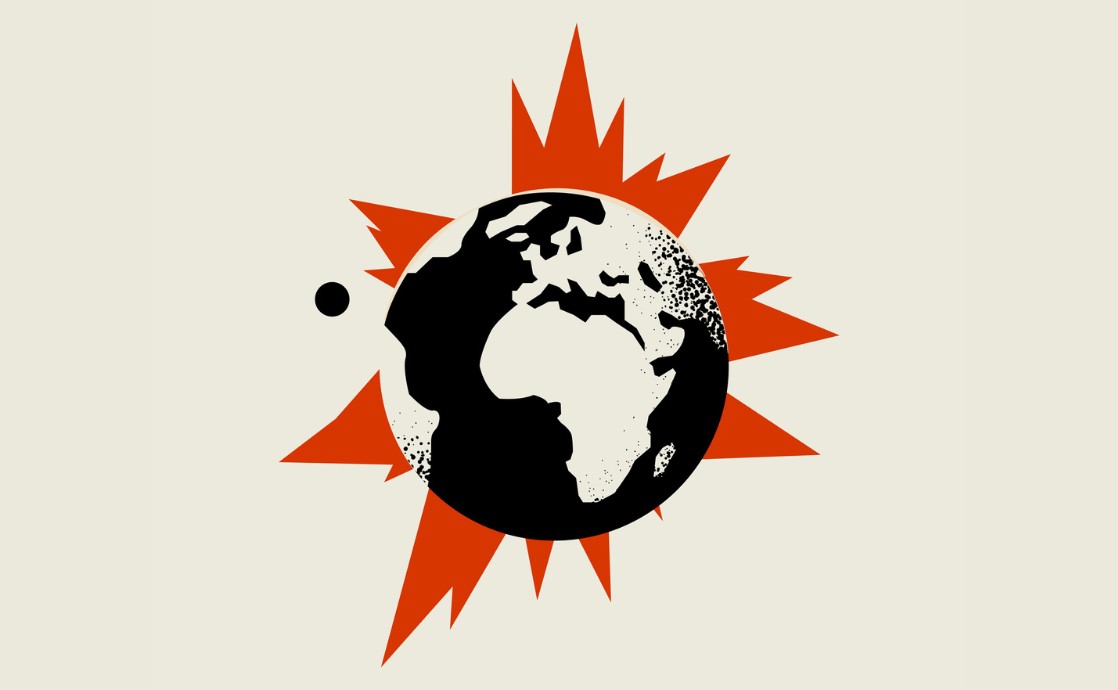In contemporary discourse, discussions regarding apocalyptic scenarios often evoke a sense of trepidation and urgency. The Bahá’í teachings provide a framework through which individuals can navigate such anxieties and drive toward collective advancement. The principle of unity and collective action emerges as fundamental in mitigating existential threats while fostering community resilience. This article delineates the various dimensions pertaining to “Avoiding Apocalypse – Finding the Road Forward Together,” as inspired by Bahá’í tenets.
The Concept of Apocalypse in Bahá’í Thought
To appreciate how Bahá’ís interpret the apocalypse, one must first understand its multifaceted nature—both literal and metaphorical. The Bahá’í Faith reveals that apocalyptic fears often stem from societal disintegration, moral decay, and environmental catastrophes. However, it articulates that these phenomena are not inevitable endings; rather, they can serve as catalysts for profound systemic transformation. These transformations necessitate cooperation and a reorientation of societal values toward justice, equity, and the sanctity of human life.
The Role of Spirituality in Crisis Management
Central to overcoming potential apocalyptic scenarios is a robust spiritual foundation. Bahá’í teachings emphasize the importance of spiritual development and moral rectitude as instrumental in societal guidance. Through prayer, meditation, and community engagement, individuals fortify their inner resilience, enabling them to respond constructively to crises. This spirituality engenders an ethical substratum from which all actions emerge, profoundly impacting collective behavior. It encourages attitudes of hope and optimism, vital traits in the face of adversity.
Unity and Collective Action
Unity stands as one of the pillars of Bahá’í teachings. It is posited that due to the interconnected nature of modern society, the collective undertaking is indispensable for addressing global challenges. This principle espouses transcending ethno-cultural, religious, and national boundaries, fostering an environment conducive to collaboration. The “road forward” is a shared pathway, which necessitates the pooling of resources, knowledge, and expertise among diverse groups to formulate comprehensive solutions to humanitarian crises, climate change, and socio-economic inequities.
Education as a Transformative Force
Education serves as a linchpin in the Bahá’í approach to societal transformation. It is viewed not merely as an institutional endeavor but as a lifelong process of acquiring knowledge and virtues conducive to the common good. This empowerment through education transforms individuals and communities, equipping them with the analytical skills essential for critical problem-solving. In a world rife with misinformation and divisive ideologies, educated individuals can better discern pathways away from deleterious ideologies, fostering a culture of informed participation.
Environmental Stewardship
Bahá’í teachings advocate for the stewardship of the environment as an ethical imperative. The deteriorating state of global ecosystems is a pressing issue that demands immediate attention and action. The concept of “sustainable development” is intertwined with the belief that humanity holds a sacred duty to protect the Earth. Programs promoting renewable energy, conservation of natural resources, and ecological restoration reflect a commitment to ensuring a habitable planet for future generations. Collective endeavors in environmental conservation underscore the essence of shared responsibility, where individuals are called upon to act not only for their well-being but also for the well-being of the entire planet.
The Framework of Consultation
A significant element in Bahá’í practice is the method of consultation. This process promotes open dialogue, where diverse perspectives are encouraged and respected. It fosters an environment where solutions can arise organically from collective wisdom. This democratic mechanism serves as a means of conflict resolution and decision-making, enabling communities to come together and address challenges collaboratively. In moments of impending crisis, the consultation framework empowers communities, reinforcing the idea that collective decision-making can yield innovative strategies to avert potential disasters.
The Power of Community Building
Community is an elemental construct within Bahá’í teachings, representing the microcosm of the larger society. Building vibrant, inclusive communities is pivotal in harnessing the collective potential to navigate crises. Cenobitic life—where individuals engage in shared endeavors—nurtures solidarity and social cohesion. By establishing connections rooted in mutual respect and support, communities can more effectively chart the course toward a resilient future. Collective social action, therefore, becomes not merely aspirational but a realized embodiment of the Bahá’í ideal of oneness.
Global Governance and Universal Peace
The Bahá’í vision extends to the establishment of a global governance system that embodies principles of justice and equity. Such a system is fundamental in addressing the ostensible threat of global apocalyptic scenarios. It necessitates embracing a world federation that transcends nationalistic tendencies, whereby global peace can flourish. The unification of diverse peoples under a framework of shared governance reinforces the importance of collaboration at all levels, ensuring that no society is left vulnerable in the face of global realities.
Conclusion: Embracing the Future Together
The teachings of Bahá’u’lláh illuminate a pathway away from apocalyptic fears toward a constructive and collaborative future. By championing values such as unity, education, environmental stewardship, community engagement, and consultation, individuals can recognize their role as stewards of civilization. Through collective action and a shared vision, humanity can embrace a future that is not dictated by despair but inspired by hope. In finding the road forward together, we cultivate a legacy of strength, resilience, and harmony in the face of an increasingly complex world.
